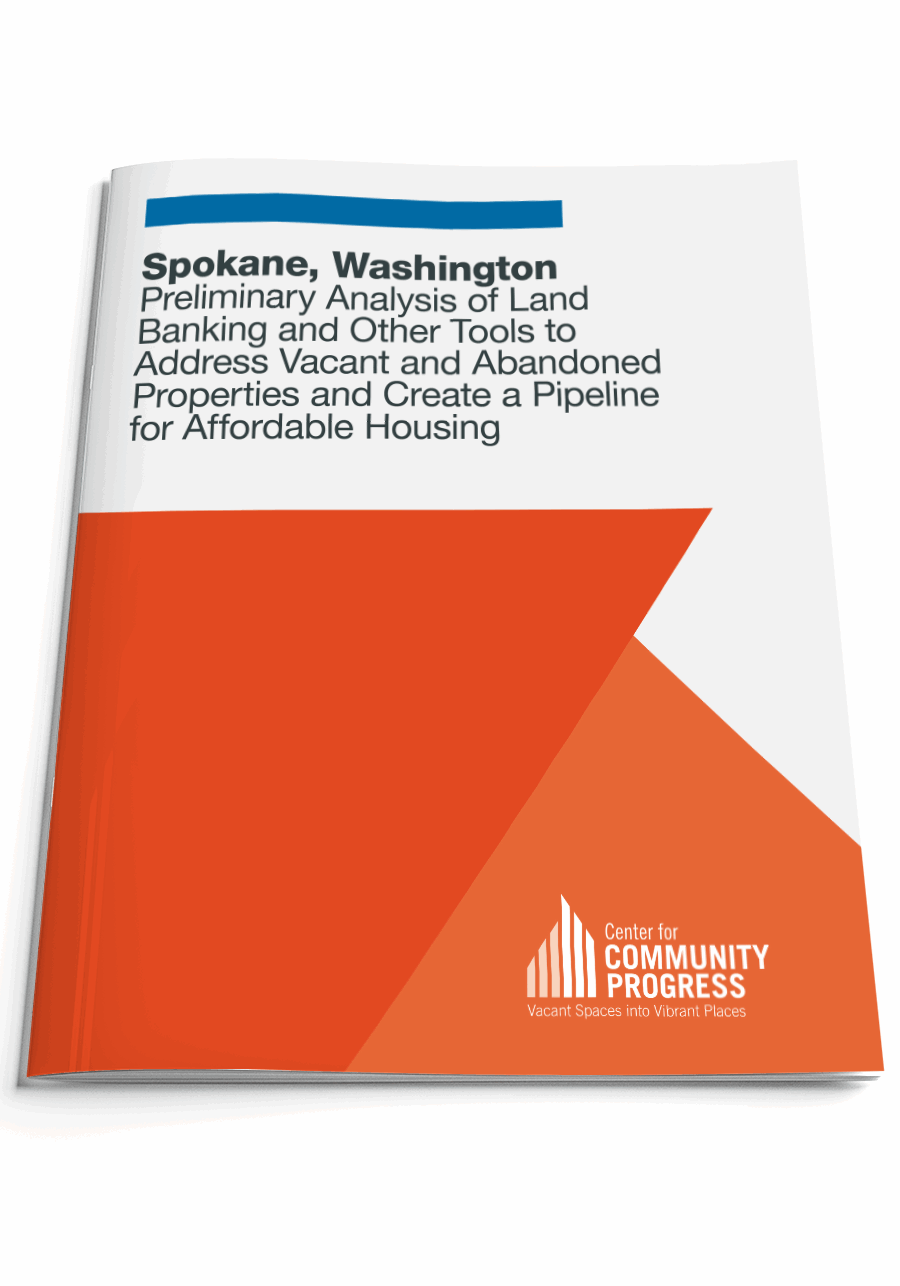Spokane, Washington
Preliminary Analysis of Land Banking and other tools to Address Vacant and Abandoned Properties and Create a Pipeline for Affordable Housing
Topic(s): Land Banks, Local Analysis
Published: September 2021
Geography: Washington
Author(s): Center for Community Progress
In January 2021, the Spokane Neighborhood Action Partners (SNAP) on behalf of the Invest Health Spokane team, engaged Community Progress to explore whether a land bank is the right tool to address the inventory of vacant, abandoned, and deteriorated properties in Spokane. Like other communities, Spokane is asking an important and seemingly simple question: How can the current inventory of vacant properties be utilized to address the critical shortage of affordable housing in Spokane? The answer, however, is a bit more complicated given the myriad of legal and economic barriers that keep these properties inaccessible to the private market and affordable housing organizations alike. Local government controls many of the tools and systems that are critical to unlocking VAD properties for productive use, such as affordable housing, and preventing these properties from going into decline in the first place. Therefore, much of Community Progress’ work across the country is focused on understanding and maximizing these legal tools and systems prior to creating a land bank. Systems that enforce local housing and building ordinance and codes and the collection of property taxes are often the first line of defense in stabilizing communities and ensuring protections are given to vulnerable owners and occupants to prevent displacement.
This report offers foundational information on land banks and their role in affordable housing (with a special note on community land trusts), and a technical section on the City of Spokane’s legal systems and programmatic tools to address vacant properties. A key conclusion of the report is that the City of Spokane should first explore reforms to their code enforcement systems. Through increased collaboration and coordination among local code enforcement and delinquent property tax enforcement, the City could unlock additional funding and a pipeline of vacant property that could go to a potential land bank or other new, responsible party for affordable housing. Prioritizing these reforms could set the foundation for future discussions regarding a land bank.

Topic(s): Land Banks, Local Analysis
Published: September 2021
Geography: Washington
Related Publications
Other Related Content
Subscribe to join 14,000 community development leaders getting the latest resources from top experts on vacant property revitalization.
